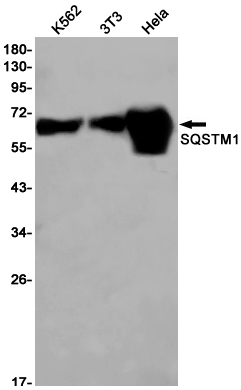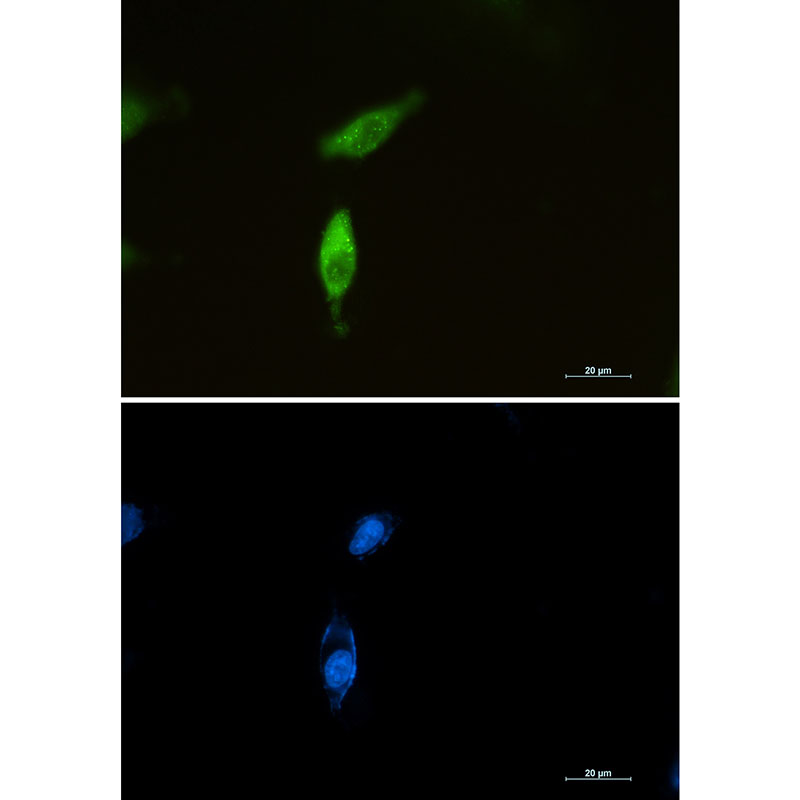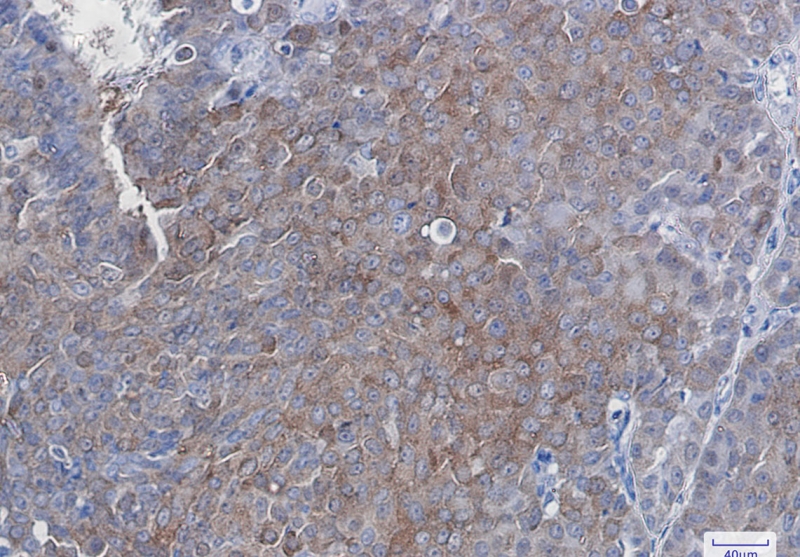


| WB | 1/500-1/1000 | Human,Mouse,Rat |
| IF | 1/20 | Human,Mouse,Rat |
| IHC | 1/50-1/100 | Human,Mouse,Rat |
| ICC | 1/50-1/200 | Human,Mouse,Rat |
| FCM | 咨询技术 | Human,Mouse,Rat |
| Elisa | 咨询技术 | Human,Mouse,Rat |
| Aliases | p60; p62; A170; DMRV; OSIL; PDB3; ZIP3; p62B; NADGP; FTDALS3 |
| Entrez GeneID | 8878 |
| WB Predicted band size | Calculated MW: 48 kDa; Observed MW: 62 kDa |
| Host/Isotype | Rabbit IgG |
| Antibody Type | Primary antibody |
| Storage | Store at 4°C short term. Aliquot and store at -20°C long term. Avoid freeze/thaw cycles. |
| Species Reactivity | Human,Mouse |
| Immunogen | Recombinant protein of human SQSTM1 |
| Formulation | Purified antibody in TBS with 0.05% sodium azide,0.05%BSA and 50% glycerol. |
+ +
以下是关于SQSTM1/p62抗体的3篇参考文献,按格式整理:
1. **文献名称**:*"p62/SQSTM1 binds directly to Atg8/LC3 to facilitate degradation of ubiquitinated protein aggregates by autophagy"*
**作者**:Ichimura Y, Kumanomidou T, Sou YS, et al.
**摘要**:该研究通过免疫共沉淀和荧光标记技术,揭示了p62通过其LC3相互作用区(LIR)直接结合自噬关键蛋白LC3.促进泛素化蛋白聚集体的自噬降解。实验中采用p62抗体进行Western blot和免疫荧光验证。
2. **文献名称**:*"Homeostatic levels of p62 control cytoplasmic inclusion body formation in autophagy-deficient mice"*
**作者**:Komatsu M, Kageyama S, Ichimura Y.
**摘要**:研究利用p62基因敲除小鼠模型,通过免疫组化和抗体染色发现,p62缺失可显著减少自噬缺陷小鼠肝脏中的蛋白聚集体,证明p62在调控细胞质内含体形成中的关键作用。p62抗体用于组织切片染色和定量分析。
3. **文献名称**:*"Sequestosome 1/p62 is a polyubiquitin chain binding protein involved in ubiquitin proteasome degradation"*
**作者**:Bjørkøy G, Lamark T, Brech A, et al.
**摘要**:该研究通过免疫印迹和免疫电镜技术,首次证实p62作为泛素链结合蛋白参与蛋白酶体降解途径。实验中利用p62抗体追踪其在泛素化蛋白聚集区域的定位,并验证其与泛素化蛋白的相互作用。
---
**注**:以上文献均聚焦于p62在蛋白降解途径中的作用机制,抗体应用涵盖Western blot、免疫荧光及组织染色等实验场景。如需具体期刊信息或发表日期,可进一步补充检索。
×